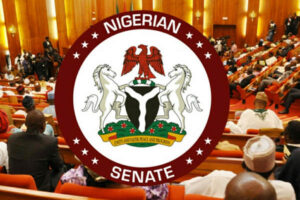
This information comes from the Nigeria Economic Report (Q2), published by the Central Bank of Nigeria (CBN) in October.
The report revealed that revenue inflows rose in the first three months of 2024, with higher collections from petroleum profit taxes, royalties, independent federal revenues, and taxes on oil-producing companies. There was also a boost in tax collections, especially from VAT and customs duties.
ALSO READ:
DATA: 4 in 10 Nigerian Children Under 5 Have Stunted Growth
“At N6.28 trillion, provisional gross federation account receipt was 26.37 per cent above the level in Q1 2024. Higher receipts from royalties, PPT, and upstream CIT resulted in a 13.23 per cent increase in oil revenue to N1.73 trillion, relative to the first quarter of the year,” the report stated.
“Non-oil revenue, at N4.55 trillion, was 32.22 and 23.07 per cent above the levels in the preceding quarter and the target, respectively. The increase was driven, largely, by higher collections from independent revenue of the FGN, VAT and customs & excise duties.”
Despite this inflow boost, oil revenue still missed Nigeria’s quarterly targets by a striking 67.30%, based on the budget framework. Overall, revenue in the first quarter was 30.17% below the benchmark used for budget planning.
ALSO READ: Government To Ban Social Media Access For Under 16 Children
These numbers mean the government doesn’t have enough funds to meet its 2024 budget goals, leaving a shortfall of about N4.53 trillion. To cover this gap, the government may need to borrow more funds.
In October, This Day reported that Nigeria had already borrowed around N5.28 trillion to fill gaps in the 2024 budget.

Meanwhile, Nigeria’s public debt maintained its above-the-40% threshold public debt stock in Q2 2024, according to the report.
ALSO READ: Nigeria Falls Short of Revenue Target, Posts N4.5trn Deficit in Q2—Report
The report chalks the debt status mostly to currency revaluation, fresh loans, and the securitisation of the “ways and means” debt:
“A breakdown of the consolidated public debt showed that domestic debt accounted for 53.95 per cent, while external debt obligations constituted 46.05 per cent. Of the consolidated public debt stock, FGN owed N117.60 trillion (96.66%), while the state governments accounted for the balance.”
Join Our Whatsapp Group for More Updates
https://chat.whatsapp.com/CvCKPceQToUHallVTwWP3S
A February report by FIJ showed many Nigerian states missed their revenue targets in the 2023 fiscal year.
FIJ had also reported how some states may struggle to fund their personnel costs without federal aid in 2024, which could further inflate Nigeria’s already high public debt.
Credit: FIJ








